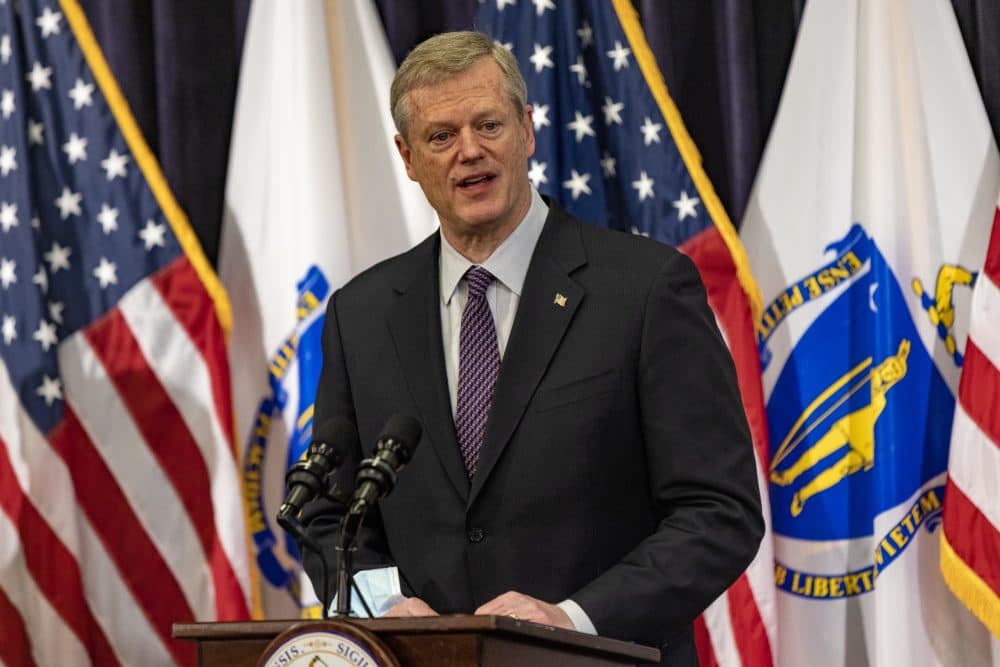Advertisement
Inflation blunts impact of school aid increases in Baker’s budget

More than 40% of the state's school districts would receive the smallest possible bump in funding under the governor's budget plan, and administration officials and lawmakers alike agreed Tuesday that the minimum aid increase is not really much of an increase thanks to the high rate of inflation.
Of the state's 318 operating school districts, 135 would get minimum aid funding increases of $30 per student, which the Massachusetts Municipal Association and Rep. Natalie Blais said would represent "below-inflation aid increases of approximately 1 percent" for districts that would not otherwise see their aid amount increase under the state's funding formulas.
"Those districts would struggle mightily just to maintain existing programs and services. We don't think they would be able to do so at all," Geoff Beckwith, executive director of the Massachusetts Municipal Association, told the Joint Ways and Means Committee during a hearing on the education and local aid portions of Gov. Charlie Baker's $48.5 billion fiscal 2023 budget plan.
Beckwith said the governor's budget proposal would provide the 135 "minimum aid" districts with a combined increase of $9.3 million, while the remaining districts would receive about $475 million collectively. The MMA has called on the Legislature to increase the per-student minimum aid amount from $30 to $100 to provide greater resources to those districts.
"Otherwise, some communities will go forward but many school districts will see their programs go backwards," Beckwith said. He added, "It doesn't require a formula change. It just requires a minimum amount of $100 a student that would cost collectively about $23 million, according to the most recent numbers put out by [the Department of Elementary and Secondary Education]."
During Tuesday's hearing, Blais raised the issue of minimum aid with Education Secretary James Peyser and DESE Commissioner Jeff Riley.
"For communities like mine in the First Franklin District, where school budgets can account for 60 percent or more of a town's budget, this can be really devastating," Blais, who represents 19 communities just north of Amherst and west of the Quabbin Reservoir, said. "So I'm just wondering what consideration was given to addressing this issue for these districts."
Riley said that DESE has "a history" of looking at districts that don't benefit as much as others under state formulas and supplementing their aid. But he asked DESE Chief Financial Officer Bill Bell to answer in more detail.
"As a general statement, I would say we're well aware of how the formula does not, I guess I will say, equally benefit all districts in the commonwealth," Bell said. "We're certainly aware of the effects in rural school districts, primarily with the formula being driven by headcount and the ability to pay for that headcount ... We do have the rural aid program that's somewhat of a stopgap."
Advertisement
Blais said she thought that "there must be other things, other ways, that you can consider to help address this issue for these communities," but Peyser suggested that there really is not much more the administration could do and said the minimum increases would seem more generous if it were not for the high rates of inflation that have plagued the country since last year.
"Unfortunately, there is no easy answer to that question, in part because, as with many things as this committee understands, it comes down to money as well and then choices that are made," the education secretary said. "But one thing I just note in particular that is particularly challenging this year is the high level of inflation, which means that normal efforts like minimum aid — you know, $30 for minimum aid or $50 or whatever it might be — don't quite seem as large as they would in a low-inflation environment. So there's definitely something unique about this particular year given the level of inflation."
Blais said she agreed but was disappointed that the administration did not consider the high level of inflation and what it would mean for district aid allotments before filing its budget proposal.
"I guess I just would have hoped that that would have been recognized and somehow addressed in the budget proposal from the governor," she said.